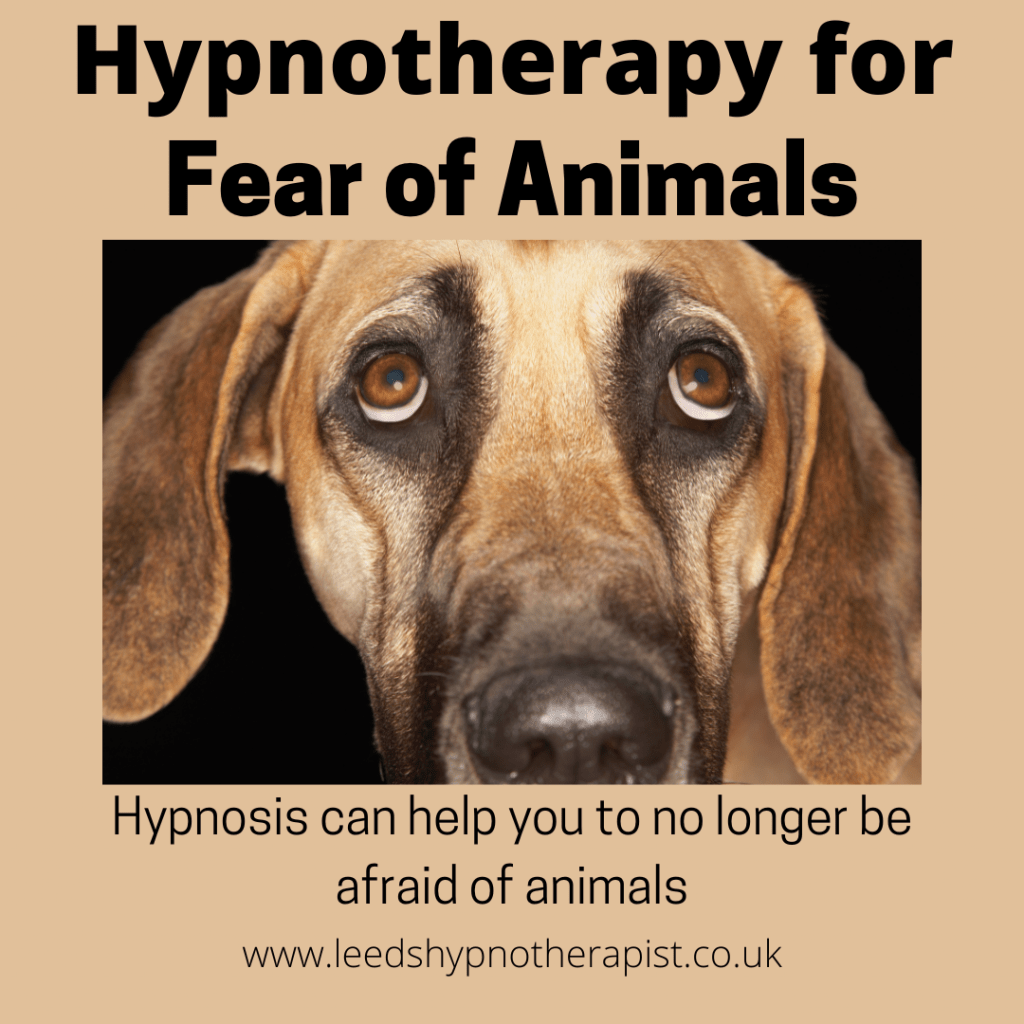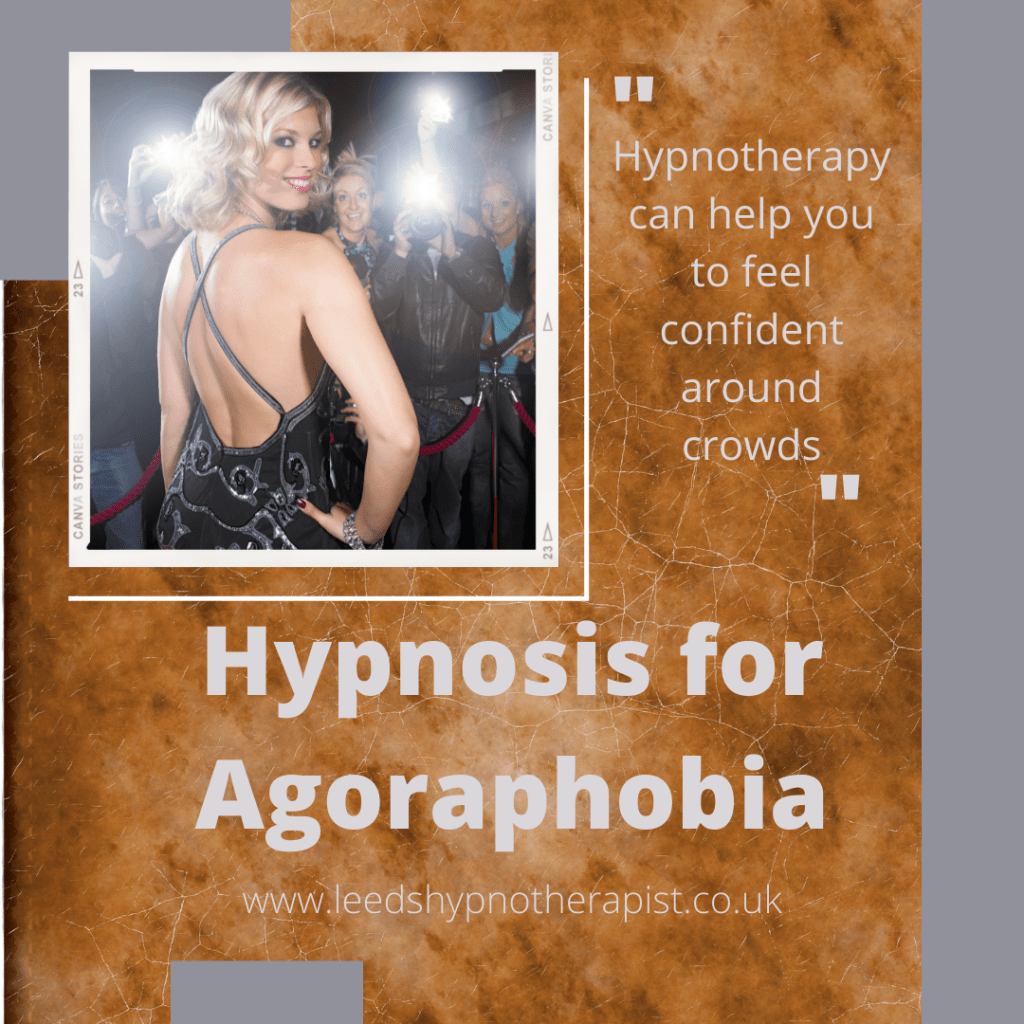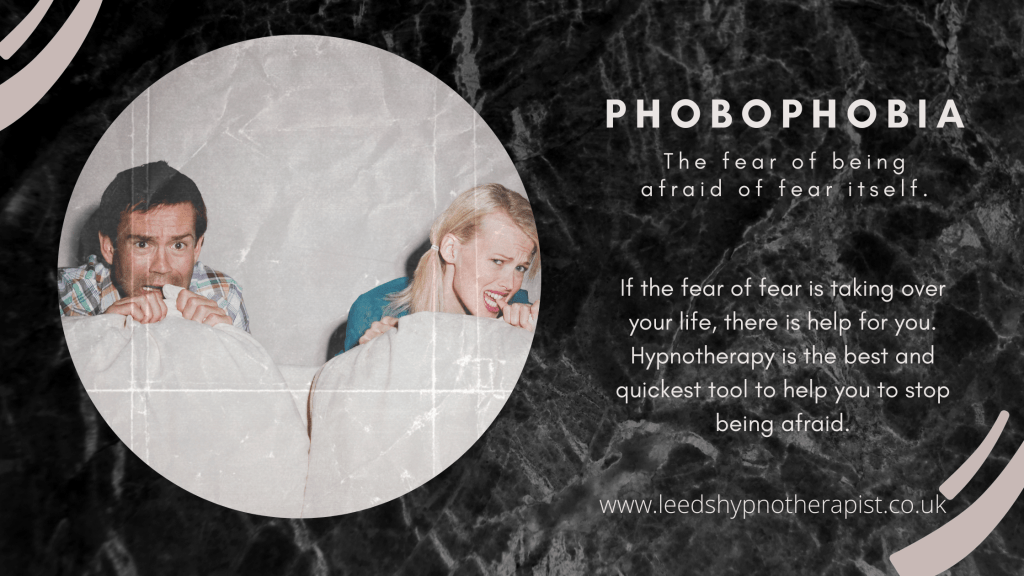Do you ever feel like you’re living in a constant state of fear? That everything makes you anxious and uneasy? If so, you may be suffering from phobophobia – the fear of fears. This debilitating condition can keep people from leading normal lives, but hypnotherapy can help to free them from fear. In this article, we will discuss what phobophobia is, some of the most common fears that trigger it, and how hypnotherapy can help to overcome them. In this article we will look deeper into phobophobia and what you can do to free yourself from this specific phobia.
Why do we have fears and phobias?
For many of us, specific fears and phobias can be extremely disruptive, preventing us from living our lives to the full. But why do we have these irrational fears in the first place?
There are a number of theories as to why we develop specific phobias. One suggestion is that they’re a throwback to our early days as humans when it was essential to be afraid of predators and other dangers. Another possibility is that we learn to be afraid by observing others around us. If someone we trust and respect is afraid of something, we may start to feel the same way.
A specific phobia is an irrational fear of a specific object or situation, such as heights or flying. People with specific phobias often go to great lengths to avoid their triggers. For example, someone with a fear of flying may never take an aeroplane, even if it means driving for days to reach their destination. The exact cause of specific phobias can be found using hypnotherapy to get to the root cause of the issue. Many people with specific phobias live in constant fear of their triggers, which can lead to anxiety and depression.
Phobias usually develop in childhood or adolescence, but can also appear later in life. There are many different types of specific phobias, including fears of animals, heights, needles, and blood. While the specific object of a phobia may vary, the physical symptoms are often the same. Sufferers may experience rapid heart rate, sweating, shaking, and difficulty breathing. In severe cases, they may even feel like they are going to faint or have a panic attack. The constant worry and avoidance can take a toll on mental health and physical health.
Left untreated, phobias develop and can intermingle with other issues such as anxiety disorder, social phobia or even into extreme fear. It is important to take care of phobias and fears as soon as possible to stop their progress in intensity.
Whatever the cause, hypnotherapy can be an effective treatment for specific phobias. By working with a qualified hypnotherapist, you can explore the root cause of your fear and start to change the way you think and feel about it. In time, you should be able to overcome your irrational fear and live a fuller, happier life.
What are the most common phobias that people have?
Many people suffer from specific phobias, which are intense fears of specific objects or situations. Common specific phobias include fear of heights, fear of animals, and fear of flying. Other phobias are more general, such as agoraphobia (fear of open spaces) and claustrophobia (fear of enclosed spaces). People with phobias often go to great lengths to avoid the object or situation that they fear. In severe cases, phobias can cause anxiety and panic attacks.
Here are the most common fears and phobias that people have:
Fear of heights
For many people, the thought of standing on a tall building or even looking down from a great height is enough to trigger a sense of vertigo and an overwhelming feeling of fear. This phobia, known as acrophobia, is one of the most common phobias in the world.
While the exact cause of acrophobia is unknown, it is often thought to be related to a traumatic experience or to a genetic predisposition. In some cases, acrophobia can be mild and only triggered by specific circumstances, such as standing on a ledge or looking over a railing.
For others, however, the fear can be so severe that it interferes with daily activities and causes significant distress.

Fear of animals
Many people have a fear of animals, but for some, this phobia can be debilitating. The fear of animals, also known as Zoophobia, can be triggered by a number of factors, including a bad experience with an animal, a fear of the unknown, or even genetics. Physical symptoms of Zoophobia can vary from person to person, but may include anxiety, rapid heartbeat, and difficulty breathing. In severe cases, people with Zoophobia may go to great lengths to avoid contact with animals, which can severely impact their quality of life.
People with animal phobias may experience intense anxiety and panic when they encounter the object of their fear. In some cases, the phobia may be so severe that it interferes with daily activities or prevents people from leaving their homes. The exact cause of animal phobias is not known, but they are often thought to develop as a result of a traumatic event or due to exposure to media depictions of animals.
However, there is hope for those who suffer from this phobia. With treatment, people with Zoophobia can learn to manage their fear and lead happy and fulfilling lives.
Fear of flying
For many people, flying is the quickest and most convenient way to travel. But for those with a fear of flying, the very thought of getting on a plane can be enough to cause anxiety and panic. This phobia, also known as aviophobia or aerophobia, is relatively common, affecting an estimated 6.5% of adults in the United Kingdom.
The fear of flying is a phobia that can be extremely debilitating. For some people, the mere thought of getting on an aeroplane is enough to trigger a panic attack. The phobia can cause immense anxiety and may even lead to avoidance behaviours, such as refusing to fly or only flying with a specific airline.
There are a number of factors that can contribute to a fear of flying, including a previous bad experience, a traumatic event, a fear of heights, a fear of rollercoasters or simply a general feeling of unease. symptoms can range from mild discomfort to full-blown panic attacks and may include sweating, increased heart rate, and difficulty breathing. With treatment, many people are able to overcome their fear of flying and live normal, healthy lives.
Fear of needles
A phobia is an irrational fear of a specific object or situation. The fear may be so severe that it interferes with a person’s everyday life. Millions of people in the UK suffer from phobias, and needles are one of the most common phobias. The fear of needles, also known as trypanophobia, is thought to be caused by a combination of factors, including a fear of pain and a fear of the unknown.
People with trypanophobia often experience anxiety and panic when confronted with needles, and some may even faint. In severe cases, the phobia can prevent people from getting the medical care they need.
If you suffer from trypanophobia, there are treatment options available, such as hypnotherapy, that can help you overcome your fear.
Fear of blood
Phlebotophobia, or the fear of blood, is a condition that can cause extreme anxiety in those who suffer from it. The phobia can be triggered by the sight of blood, injections, or even the thought of blood. In some cases, phlebotophobia can be so severe that it leads to fainting or a full-blown panic attack.
There are treatments that can help to manage the condition. Hypnotherapy is the best solution for this specific phobia. You can try things yourself such as relaxation techniques, such as deep breathing and visualization. These are often used to help phobics deal with their fear. In addition, many phobics choose to avoid situations that trigger their anxiety.
However, avoidance is not a long-term solution, and it can actually make the phobia worse over time. If you suffer from phlebotophobia, it is important to seek a professional hypnotherapist in order to learn how to cope with your fear.
Agoraphobia
Agoraphobia is a type of phobia that’s characterised by an intense fear of places or situations where it might be difficult to escape or get help if something goes wrong. People with agoraphobia often avoid public places, like shopping malls, cinemas, or crowded streets. In extreme cases, people with agoraphobia may become completely confined to their homes.
Although agoraphobia can develop at any age, it’s most common in young adults and usually begins before the age of 35. Women are also more likely to develop agoraphobia than men.
While the exact cause of agoraphobia is unknown, it’s thought to be a combination of genetic and environmental factors. Treatment for agoraphobia usually involves hypnotherapy to help reduce anxiety and release the fear.

Claustrophobia
Claustrophobia is a phobia that refers to the fear of enclosed or tight spaces. People who suffer from claustrophobia often experience panic attacks and feel like they are unable to breathe. The condition can be triggered by a variety of situations, including elevators, crowded rooms, and flying on an aeroplane.
Claustrophobia can have a significant impact on a person’s quality of life, as it can make everyday activities very difficult to manage.
There are a number of treatments available for claustrophobia, including exposure therapy and hypnotherapy. With the help of a qualified professional, people with claustrophobia can learn to manage their fear and live normal, happy lives.
If you think you might have a phobia, it is important to seek professional help. With treatment, most people are able to overcome their fear and live normal, healthy lives.
What is phobophobia and what are some of the most common fears that trigger it
Phobophobia is an anxiety disorder characterized by a fear of phobias. Situational phobias, such as fear of public speaking or fear of heights, are some of the most common triggers for phobophobia. The anxiety and fear associated with phobophobia can lead to avoidance behaviours, such as avoiding situations where the person might have to confront their fears. In severe cases, phobophobia can interfere with daily activities and cause significant distress.
Treatment for phobophobia typically includes hypnotherapy, which helps the person gradually face their fears in a safe and controlled environment. With treatment, most people with phobophobia are able to overcome their fears and live normal, anxiety-free lives.
How hypnotherapy can help to overcome these fears
Fears and phobias can have a debilitating effect on our lives, preventing us from doing the things we enjoy or even leaving the house.
Hypnotherapy is a tool that can be used to help people overcome their fears. Hypnotherapy works by inducing a state of relaxation and then planting suggestions in the subconscious mind that help to change the way we think about our fear.
For example, someone who is afraid of dogs may be given the suggestion that dogs are harmless and friendly. A patient who is afraid of heights may be helped to see that their fear is unfounded and that they are capable of safely enjoying activities such as hiking or climbing.
Over time, these suggestions can help to change our behaviour, making it possible to overcome our fears.
Hypnotherapy is a safe and effective treatment for many different types of fears and phobias, and it can be done in just a few sessions.
If you are struggling with a fear or phobia, hypnotherapy may be able to help you overcome it.
The benefits of overcoming phobophobia
Overcoming phobophobia, or the fear of fears, can have numerous benefits. For many people, their fears and phobias can cause significant distress and interfere with their everyday lives.
By overcoming their fears, they can reduce their anxiety and improve their quality of life. In some cases, overcoming phobias can also help to improve other mental disorders.
For example, people with social anxiety disorder often have a fear of public speaking. By overcoming their fear of public speaking, they can also reduce their social anxiety.
Treatment can help people with phobophobia to understand and manage their fears, and eventually overcome them. This can lead to improved mental health and well-being, as well as increased social interaction and participation in life.
Thus, overcoming phobophobia can have many positive effects on a person’s mental health. If you or someone you know suffers from phobophobia, don’t hesitate to seek help from a qualified hypnotherapist. With treatment, it is possible to overcome this mental disorder and enjoy a better quality of life.
How to find a hypnotherapist who can help you overcome your fears
Fears are a natural part of life. Everyone experiences fears, and most fears are based on specific objects or situations. However, some fears can become so severe that they interfered with daily life. When this happens, it may be necessary to seek professional help.
Hypnotherapy is a type of therapy that uses relaxation and suggestions to treat fears and other mental disorders. The therapist will first help you to relax and then will give you suggestions designed to ease your fears. For example, they may suggest that you feel safe and secure in all situations.
A hypnotherapist is a trained mental health professional who can help you overcome your fears. To find a hypnotherapist, you can ask your doctor for a referral or search online directories.
Once you have found a few potential therapists, it is important to schedule an initial consultation to make sure that the therapist is a good fit for you. During the consultation, be sure to ask about the therapist’s experience treating fears and whether they have experience treating your specific fear.
Also, be sure to ask about the therapist’s credentials and policy on confidentiality.
While it may take some time to find a hypnotherapist who specialises in treating fears, it’s worth the effort to find someone who can help you overcome your fears and live a happier, more fulfilling life.
Tips for living a life free from fear and anxiety
1. Talk to a therapist. If you are struggling with fear or anxiety, talking to a therapist can be a great way to get help. Therapists are trained to help people manage their fears and anxiety, and they can offer you support and guidance.
2. Exercise regularly. Exercise is a great way to reduce stress and anxiety, and it can be helpful for managing fear and anxiety. When you exercise, your body releases endorphins that can improve your mood and make you feel more relaxed.
3. Eat healthy foods. Eating healthy foods can help to improve your mood and help you feel more relaxed. When you eat healthy foods, you are providing your body with the nutrients it needs to function properly. This can help to improve your mood and reduce stress levels.
4. Practice relaxation techniques. Relaxation techniques such as yoga, meditation, and deep breathing can be helpful for managing fear and anxiety. These techniques can help you to relax your mind and body, which can be helpful for reducing stress levels.
5. Seek professional help if needed. If you are struggling with severe fear or anxiety, it may be necessary to seek professional help. Professional therapists specialize in helping people manage their fears and anxieties, and they can offer you the support you need to overcome your fears.




